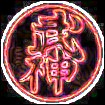Thursday was great training at Barry's dojo in North Highlands with our buyu Alex who just returned from Japan. He shared many insights and lessons. One benefit of going to Japan during the non-peak season is that you get more personal time with top teachers and Alex was able to spend one on one time with Someya Shihan and even a personal lesson from a long time California native who now lives in Japan. The nice thing about training in that environment (and training with those who come back from that environment) is that you get things that otherwise are not taught or focused on during the busier times of year, when classes are crowded and there's little personalized attention or candid moments.
One thing that Alex brought back was the comments he heard about how there are parallel evolutions happening between how training in Japan is going and how the rest of the world (i.e. the rest of us) is evolving. There seems to be a distinct directional difference in how this art is filtered and transmitted outside of Japan that can cause a lot of confusion and misdirection. This happens for many reasons, some innocent (cultural differences/levels of understanding) and some not so innocent (personal agendas, etc). This affects the way many foreigners are taught when they come to Japan. This is not to mean that we are all doing things wrong, but having an awareness and honesty about our training is probably the more crucial point. Alex mentioned that when we see or hear different things from Japan, it doesn't mean that we have to suddenly drop everything and change the way we train. Rather, it all is a process of guided evolution and it is far healthier to simply adjust the direction, like guiding a river. We have to always keep going, keep training, so we are always making small adjustments to steer on course. This is why we need to always train with the right people, to always expose ourselves to the Japan training (directly ourselves, or indirectly by training with those who are going). But, we also need to be responsible for our own training, to develop our own "eyes" to "see" the difference.
This ties into another point Alex mentioned. Japanese training focuses heavily on proper kihon, or fundamentals. It seems "the rest of us" have a habit of placing the emphasis on the next level, not the core of what makes it all work. I've seen this myself. In Japanese training, what is considered "advanced" is really to dig deeper and deeper into the kihon, to break things down more and more, like going from cellular to molecular and beyond. The tendency for "the rest of us" is to actually move farther and farther away, to expand and enlarge, so that we are only doing one variation after another without any detailed analysis of the dynamics. It really is a contrast in evolutionary direction and why there are so many who want to promote the flashy side of their training. In reality, the "real" training is actually very boring and non-flashy because the amazing part lies in the ura, or the hidden, subtle parts that really can only be experienced firsthand.
This is why in my classes, I've preferred to really only focus on the kihon. I've seen the breakdown in fundamentals when people get into the flashy side of this art. I also have had my decision reinforced over and over when I've trained with my teachers and especially when I experienced Japan training myself. I will always be the first to admit how inadequate my own kihon is. Since I, just like so many others, do not train near enough, how can I even consider focusing on anything else but my own kihon? Kihon may not be pretty, may not be exciting for some, but the time invested is well worth the effort and attention if it evolves my own taijutsu at least in a remotely similar direction to how things are done in Japan. That is, after all, why I choose to first be a student of the Bujinkan, a Japanese martial art. Otherwise, I really am no longer a student, but just one of the countless others who are doing "their own thing", no matter what I might promote myself as. It certainly would be far more comfortable and popular, just not honest.
Alex also covered interesting aspects of the tachi, or Japanese great sword, and the yari, or spear. Many good points came from those weapons, but again the key was a focus on the kihon.
Overall, it was a great class and we had so many good friends show up, some as far as Oakland. The rain pounded heavily on Barry's metal roof and my foot got soaked getting from my truck to the front door. But, all that was nothing compared to the reward of being there.
Sunday, February 7, 2010
Subscribe to:
Comments (Atom)


